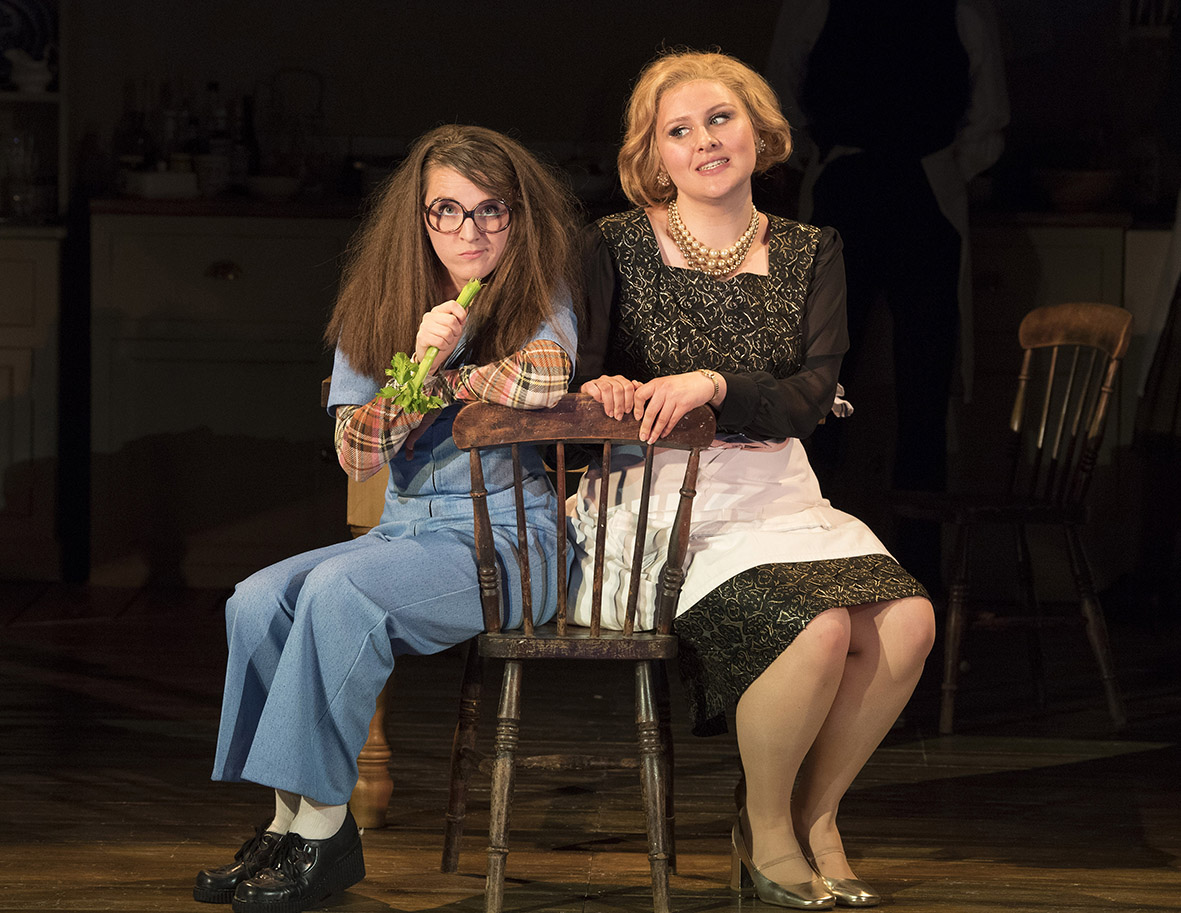Berkeley’s opera ‘A Dinner Engagement’ at the Guildhall School of Music
Students of the Guildhall School of Music stage Berkeley’s opera ‘A Dinner Engagement’
Reviewing the productions on the website The Classical Source, the music critic Peter Reed pointed out that one-acters usually ‘lead a threadbare existence on the outer edges of the repertoire, but occasionally ‘receive a blast of oxygen from the music colleges,’ and this was the case with the Berkeley/Hindemith double bill.
Though both composers were roughly contemporary they were distinctly different – ‘Hindemith, the entartete composer banned by the Nazis, who found refuge in the United States, and Berkeley the English composer with a distinctly French sensibility.’ Despite these differences, their two one-act operas share not just the theme of dinner but both involve family life, and both, in the Guildhall staging, were linked by a revolving dining table – in the Hindemith, to show the passing of time, and in the Berkeley to create new acting areas.
Peter Reed described A Dinner Engagement as ‘a cooking comedy’ about ‘a dinner that shows every sign of going off the rails’, with a score of ‘disarming facility and elegance’. He thought the Berkeley opera ‘handsomely showcases singing and acting much more overtly than the Hindemith’. Of the cast, he praised Lucy Anderson for a brilliant parody of Mary Berry as the Countess of Dunmow, and Samuel Carl whose Earl of Dunmow ‘faintly evoked the hapless Johnnie Craddock’; both, he said, were sharp comedians.
Reed’s review went on: ‘Emily Kyte shamelessly ramped up class divisions as Mrs Kneebone, a neatly-judged riff on Mrs Overall, and very well sung, as the Dunmows’ lady-who-does. Zoe Drummond was petulant on a colossal scale as daughter Susan, who, against all expectations, quickly thawed when she discovered what she and the Prince had in common, and Eduard Mas Bacardit was on top seductive form in his show-stopping aria. Lucy McAuley, splendid as the Grand Duchess of Monteblanco, drove this satisfyingly non-PC bit of froth to a happy conclusion.’
Dominic Wheeler was on ‘good form in the quick-fire adeptness of Berkeley’s music (scored for a Brittenesque ensemble of thirteen players)’ and the Guildhall instrumentalists showed ‘a natural sense of style’.
